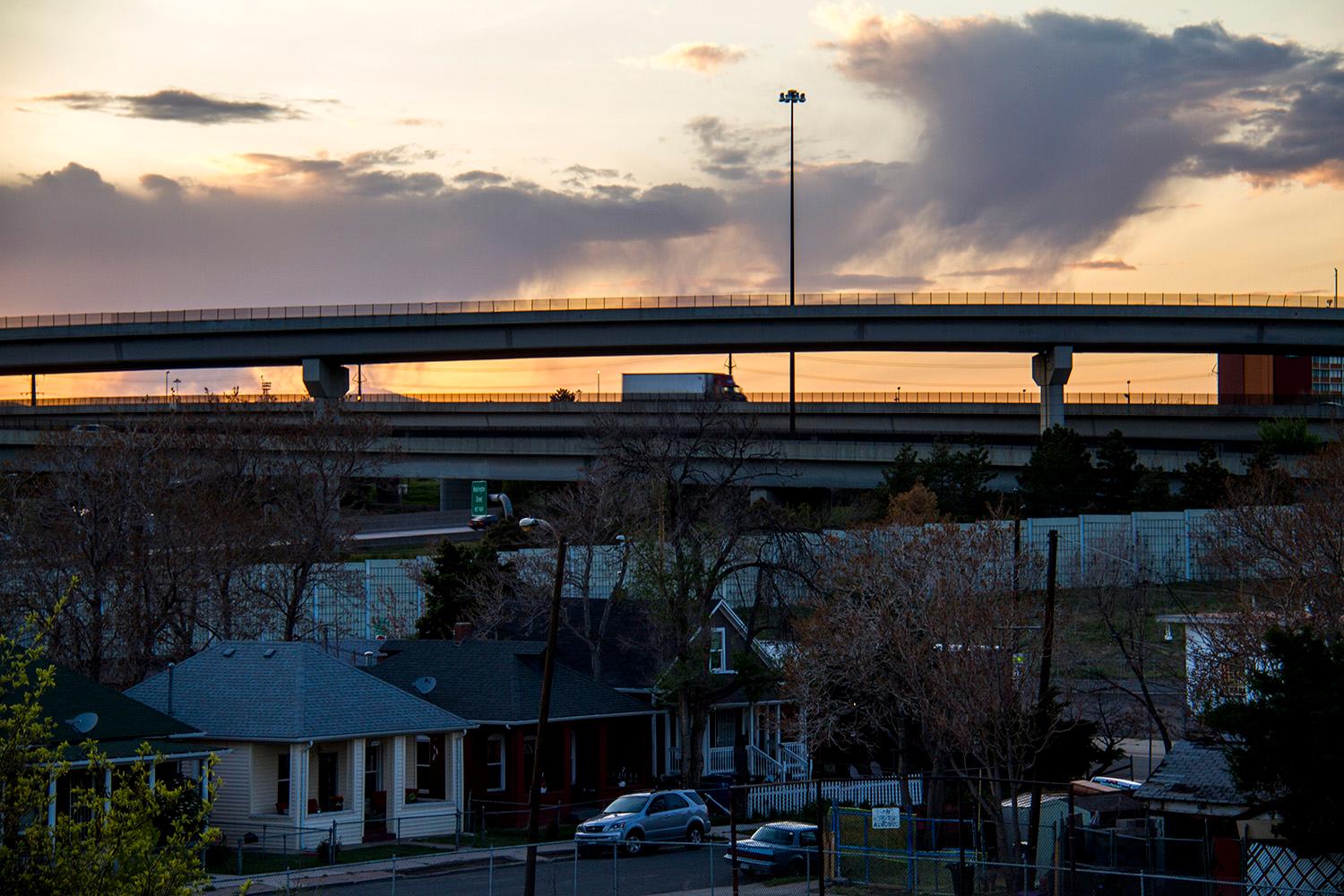
On the sidewalk outside, protestors held signs that read “Let the Community Meet with Foxx” and “Ditch the Ditch.”
At the table inside, that portion of the community represented by Mayor Michael Hancock, state and local transportation officials, business and civic leaders told visiting U.S. Secretary of Transportation Anthony Foxx that Denver, more than the six other finalists, deserves a $50 million Smart City Challenge grant to figure out how to apply technology to intractable transportation problems.
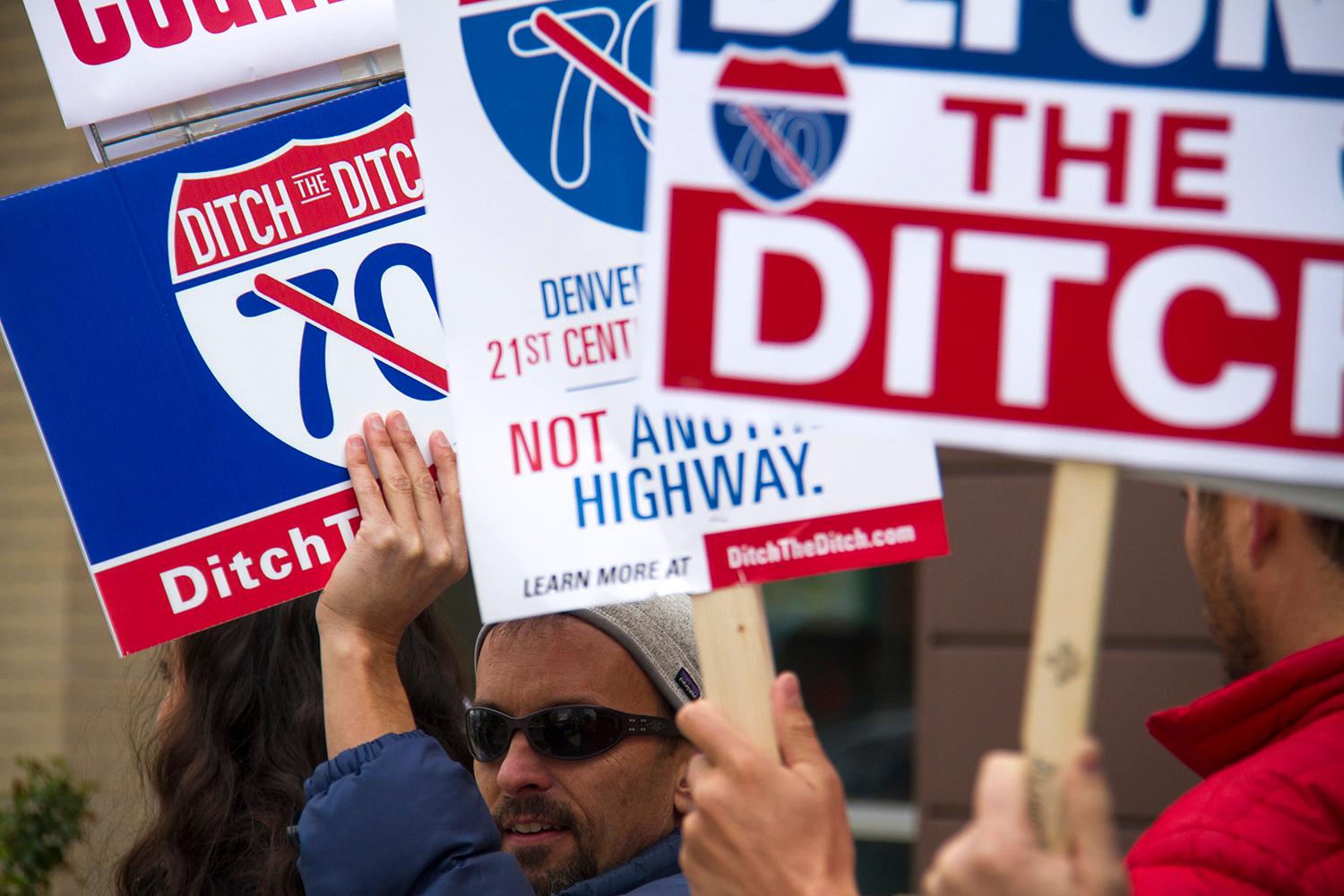
"What I haven’t found is a city that lives up to the hype of the smart city in real terms," Foxx said Tuesday at a community roundtable on the challenge grant. "What I’m trying to find is a city that can live up to the hype, and that has to be based on the fabric and reality of the city."
The protestors see the proposed widening of I-70 through north Denver as a throwback to an earlier era of transportation planning, one so egregious it should disqualify Denver from the Smart City Challenge grant.
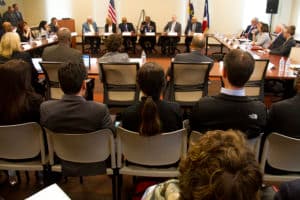
“They’re talking about getting people out of their cars and alternative transportation, and while they are applying for this grant, they are doing this project that does the opposite,” said Jude Aiello, a retired social worker who opposes the I-70 project. “All we want is our time, the real community’s time, to talk about this project.”
That was not to be. A few protestors who were willing to ditch the signs were allowed to observe, but there was no conversation about I-70.
Expanding transportation options for Denver's under-served communities
“When you talk about ladders of success, there is no rung more important than education,” said Rutt Bridges, a geophysicist and now venture capitalist. “And if those young people have to spend an hour each way getting to the places where they have opportunity, they are not going to succeed. I think the key to giving that opportunity to our young people is transportation.
Stewart Tucker Lundy, vice-chair of the Commission for People with Disabilities, put a personal face on technological potential.
“When I have good transportation infrastructure, I thrive,” said Lundy, who uses a wheelchair. “I’m able to be a prideful husband who is able to do things for my family. I’m able to contribute to my community. Without that, I cannot do anything. I would be literally homebound.
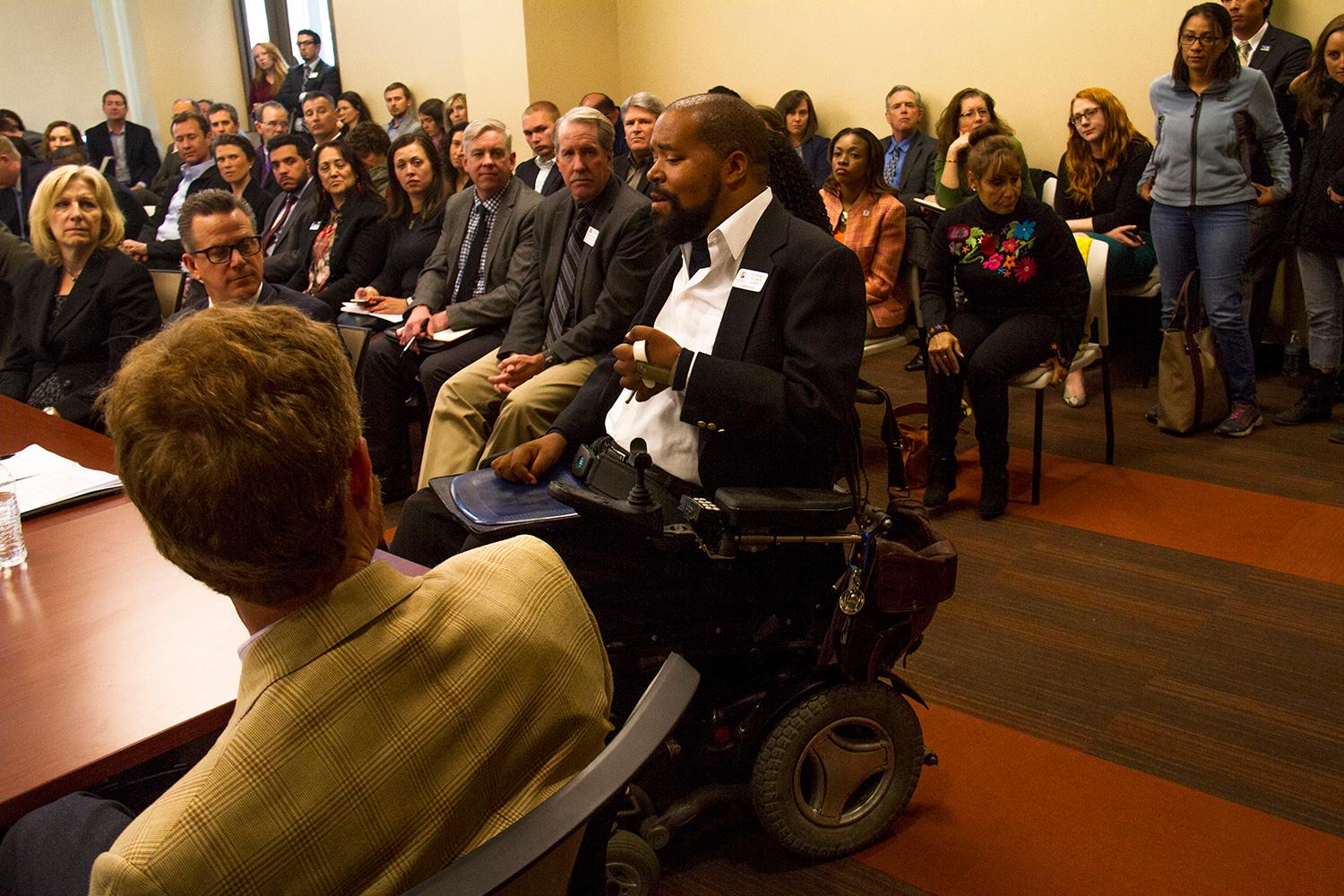
“I am the synthesis of technology and transportation,” he continued. “You make my life better, you make everyone’s life better.”
Crissy Fanganello, Denver's director of transportation, said the grant will expand transportation options in under-served communities.
"For many people in the community, transportation may exist, but it’s cumbersome," she said. "How do we make sure that it’s safe and convenient and accessible so everyone can use it? That’s the opportunity in the DOT grant."
In the future, will driverless cars handle icy commutes better than you and all your friends on I-25?
Denver's data-driven Smart City Challenge proposal includes linking car- and ride-sharing services better, encouraging electric vehicle use, preparing Denver's roads and rules for driverless cars, and preparing driverless cars for Denver's sometimes snowy and icy roads.
What this would mean for Denver residents and workers, officials said, is more efficient bus routes, cleaner vehicles, more coordination between services, easier access to information, more bike lanes and more charging stations.
“We’ve got some awfully great bones here,” Foxx said. “We’ve got a good framework. Be bold. Be authentic. Chart a path that is real to this city.”
After the roundtable, Foxx told reporters the I-70 proposal is going through its own approval process, separate from the Smart Cities grant, and has received more than 900 comments to date.
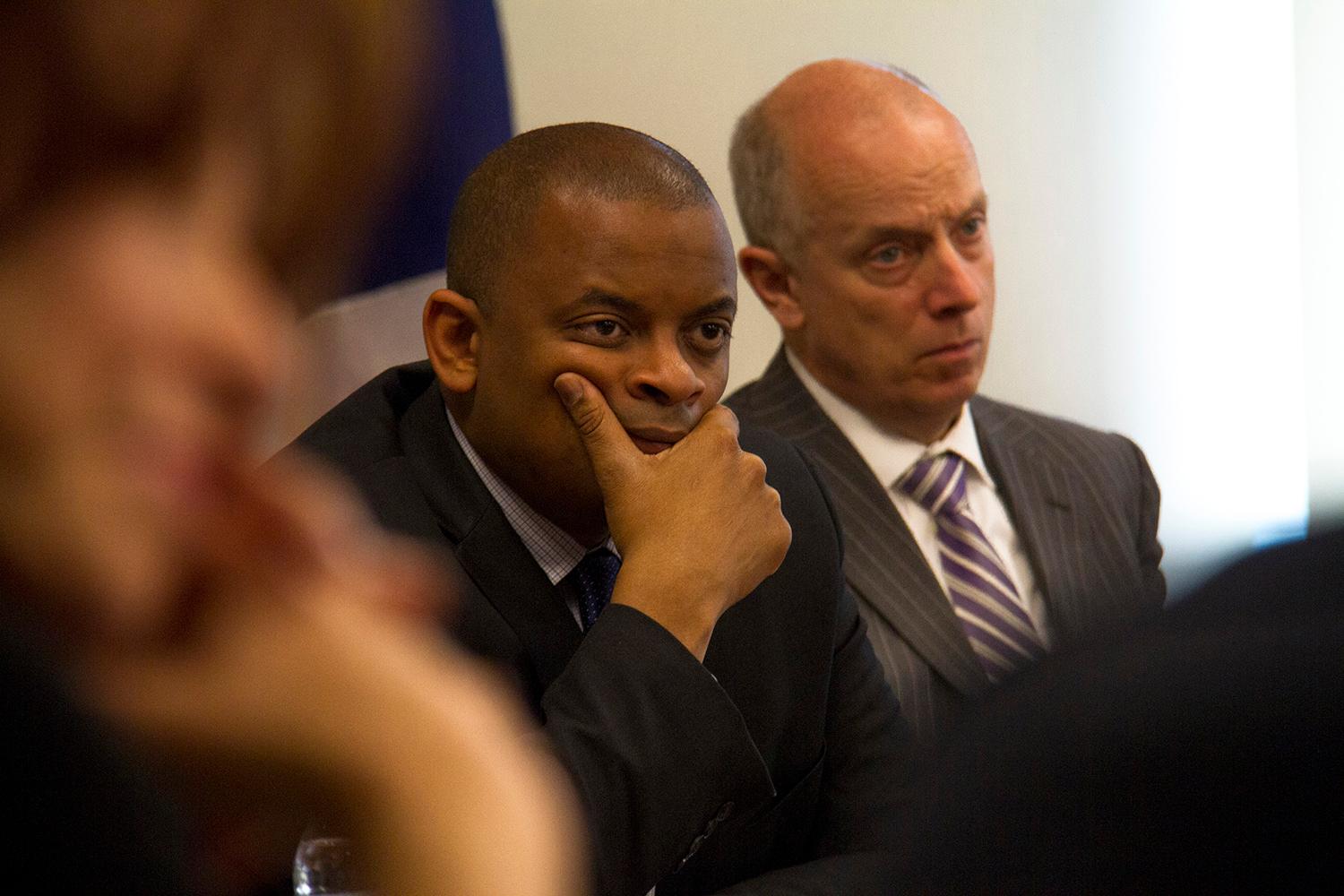
“I don’t begin to prejudge the outcome,” he said.
Foxx grew up in a poor neighborhood in Charlotte, North Carolina, walled off by three freeways. In recent months, he has argued for repairing the damage done by those old policies as communities replace aging infrastructure.
A small group of protestors remained outside when Foxx left the United Way offices.
Foxx waved and said, “We’re listening to all the comments,” before he stepped into his waiting car.
“Don’t believe what they told you!” protestor Mike McDaniel yelled from the sidewalk.













